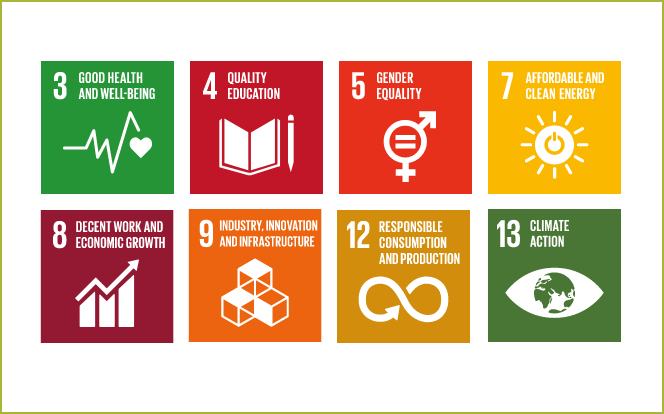Materiality Analysis
The Sustainability Report of BLG LOGISTICS has become a firm feature of our annual business reporting. It was prepared in accordance with the GRI standards (Core option). The associated GRI Content Index can be found online. This year, we have opted for even closer dovetailing of our reporting with a focus on digital publication.
Since the adoption into national law of the EU Corporate Social Responsibility (CSR) Directive, we are legally required to issue a non-financial statement as part of group reporting. This is intended to create greater transparency with regard to the environmental and social aspect of our corporate activities. We meet this requirement by preparing a non-financial Group report (NFR) as an integrated part of our Sustainability Report. The corresponding CSR Index shows where the topics relevant for the NFR appear in the various sections of this Sustainability Report.
Reporting scope
Our sustainability reporting covers the fully consolidated companies of the BLG LOGISTICS GROUP, which belong exclusively to the AUTOMOBILE and CONTRACT Divisions. Therefore, when identifying and selecting relevant topics to be dealt with in the Sustainability Report and further prioritizing the contents for the non-financial report we focused above all on these two divisions and our central departments.
This report focuses on the domestic BLG companies. They account for 93.8 percent of all employees and 96.4 percent of revenue of the fully consolidated locations, i.e. the vast majority of our business activities. In order to be able to present our sustainability performance even more transparently, we are working on increasing the availability of data from our foreign companies. In the area of energy management and for CO2 accounting, we already include consumption data from our fully consolidated foreign companies.
The CONTAINER Division is represented by the EUROGATE joint venture, which is Europe's leading shipping line-independent container terminal operator. EUROGATE independently manages the areas relevant to non-financial reporting, including energy, the environment, personnel and compliance. In the interests of transparency, the NFR-relevant topics for the CONTAINER Division are presented separately. Furthermore, EUROGATE publishes its own Sustainability Report. www.eurogate.eu/nachhaltigkeit
Defining and selecting the reported topics
In terms of content and structure, the Sustainability Report 2020 takes its cues from the 2018 and 2019 reports. In the former, we described in detail the process we applied to determine the contents of the reports. When preparing this year’s report, we once again reconsidered the headings, structure and arrangement of the material topics and made some minor changes. While neither the business developments in the reporting year nor the regular dialog with our stakeholders gave us reason to fundamentally change the way we select the aspects to be reported on, we have nevertheless slightly modified their weighting and the content focus in some cases. Among other things, after intensive consideration and taking into account current and planned political initiatives, we decided to explicitly include the topic of human rights and integrate it into the Fair Working Conditions section, which is now called Fair Working Conditions and Human Rights. We also included selected contents such as work-life balance and the employer attractiveness indicator here, instead of addressing them in a separate section. For all included topics, we continued to measure the same metrics and only supplemented, expanded or added to them insofar as the new version of individual GRI topic standards made it necessary to do so. We also added new indicators in connection with our more extensive greenhouse gas accounting.
Having included the United Nations Sustainable Development Goals (SDGs) for the first time in the 2019 report and prioritizing six of them that we considered to be especially closely linked to the impact of our business activities, we are continuing to integrate these into our business processes. We also decided to place an additional focus on SDG 7 Affordable and clean energy. Because in order to achieve our climate target, we rely, among other things, on the purchase of green electricity and at several locations produce our own electricity from renewable sources. With the planned expansion of our guidelines, we are now also including SDG 12 Responsible consumption and production for the first time.
The materiality matrix gives an overview of the allocation of SDGs and material topics.
BLG LOGISTICS supports the United Nations Sustainability Development Goals (SDGs).
